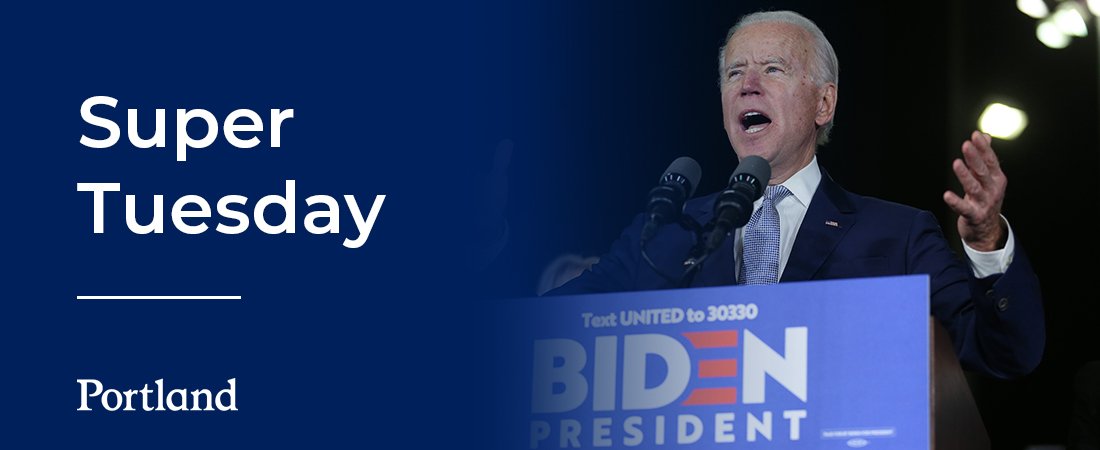A second-place finish in the 1992 New Hampshire primary, prompted former Arkansas Governor Bill Clinton to declare himself the comeback kid. Fast forward to 2020, and former Vice President Joe Biden could steal the moniker for himself. In the past five days, Biden has won a landslide victory in South Carolina and ten states on Super Tuesday. After rival candidates former South Bend, Indiana Mayor Pete Buttigieg and Minnesota Senator Amy Klobuchar suspended their campaigns and endorsed Biden, the moderate wing of the Democratic party rallied behind Biden to give him much-needed momentum heading into the second half of the primary campaign.
Two-horse race
The Democratic nominating contest is now a two-horse race between Biden and Vermont Senator Bernie Sanders. Despite both being white septuagenarians who have spent their lives in politics, the two men could not be more different. Biden is the consummate insider; he has the support of moderate Democrats and the party establishment. Sanders’ is an outsider through and through, only recently registering as a Democrat. Sanders, a self-described democratic-socialist, is promising a political revolution by turning out progressive, younger and Latino voters.
Their programs are different but so too are their views of the Trump presidency. Biden sees Trump as an aberration and believes that only he can restore normalcy to US politics. Sanders sees Trump as a symptom of a wider sickness in US politics; one that only a political revolution can cure.
The race between Sanders and Biden is more than a battle between two people competing for the most powerful job in the world; it’s a battle for the soul of the Democratic party. Biden promises stability, Sanders unprecedented change. In many ways, the Democratic contest resembles that of the British Labour Party with Biden and Sir Keir Starmer representing moderation and stability while Sanders and Rebecca Long Bailey represent the populist left.
What’s next
Former New York City Mayor Mike Bloomberg, who spent half a billion dollars and only won the territory of American Samoa, dropped out and endorsed Biden – the moderate wing is now united behind one candidate. Massachusetts Senator Elizabeth Warren might have cost Sanders wins in key states and will be urged by supporters on the left to drop out and endorse Sanders. It remains to be seen whether she will.
Biden’s resurgence has been so sudden that pundits have forgotten the reasons he had struggled in this primary. He has put in poor performances in the debates and lacks the clarity on policy provided by Warren or the passion of Sanders. Yet the establishment has rallied behind him as they seek to thwart Sanders but with victory comes scrutiny. Will Biden hold up?
The road to the confirmation of the eventual Democratic nominee is long, and as Biden’s comeback proves – a week is a long time in politics. It is probable that neither candidate emerges with enough delegates to win the nomination on the first ballot but Biden has the inside track to the nomination.
Key lessons
Biden’s campaign was running low on financial resources, and state operations were pretty thin. And yet he won big on Super Tuesday in large part because of a narrowed down field of moderate candidates and the wave of earned media coverage he received after his win in South Carolina.
Bloomberg is almost the opposite story. Despite investing a small fortune on paid advertising and betting big on Super Tuesday states, he emerged with only slightly more delegates than Warren: money matters but it doesn’t win elections.
Meanwhile, Sanders showed that despite his early wins in Iowa, New Hampshire and Nevada and his strong grassroots efforts, he still needs to grow his base to be able to win the nomination.
What does this mean for the General Election? Earned media is still king. Trump has managed to dominate the media cycle unlike any president in history and will continue to do so through election day. Democrats will need to develop their own strategy to compete with Trump’s media presence.

